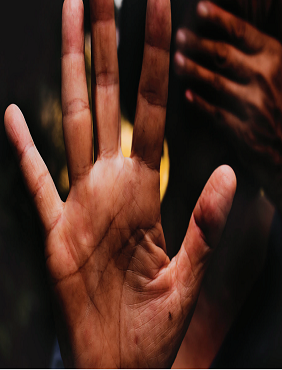Staff Reporter
The reported instances of Gender-Based Violence (GBV) surged to 147 in the 2022/2023 period from 56 in the preceding year, 2021/2022.
In 2020/2021, recorded GBV cases stood at 88, while they numbered 72 in 2019/2020.
These statistics stem from the combined fifth to seventh periodic reports submitted by Lesotho under Article 18 of the Convention on the Elimination of Discrimination against Women.
This information, presented to the Committee on the Elimination of Discrimination against Women on November 13 this year, was originally due in 2015.
Lapeng Care Centre, an organization specializing in offering psychosocial support to victims of violence, serves as the primary source for these statistics, as acknowledged by the government.
With the collaboration of development partners and the private sector, the center now offers round-the-clock services for victims and has expanded its reach to the northern region.
However, a notable limitation is that these centers can currently only accommodate women and girls, as highlighted in the report.
The government said it had taken proactive steps by enacting the Counter Domestic Violence Act of 2022, a legislation designed to criminalise domestic violence and provide protection to all victims.
It said efforts to facilitate the Act’s implementation, including translation into the local language for wider dissemination, are underway with the support of UNFPA.
“Training programs are also planned for Judges, Prosecutors, Police, Media, and various stakeholders to ensure effective application of the law,” reads the report.
Despite commendable progress, challenges persist in advancing gender equality, particularly in areas such as women’s economic and political empowerment, notably in Local Government.
The report underscores the collaborative efforts involving Government Ministries, Civil Society Organizations, the United Nations (UN) Women South Africa Office, and the Office of the High Commissioner for Human Rights Lesotho.
It states that workshops were conducted in September 2021 and August 2022 to gather input and insights for the CEDAW reporting process.
To eradicate the stigma around victims of domestic violence and gender-based violence, the government, via the Ministry of Gender, said it had taken proactive steps.
“We have organized advocacy initiatives and community engagements to emphasize the significance of reporting abuse and violence in all its manifestations,” stated the government in its report.
Moreover, collaborative efforts with the National University of Lesotho (NUL) have led to the promotion and celebration of campaigns like #Believeher.
The government highlighted: “We established a toll-free number specifically dedicated to reporting GBV cases. Additionally, an information-sharing center was set up, offering accessible GBV-related information to victims and the general populace.”
Introducing technological advancements, the government elaborated: “We have launched a digital platform in the form of a smartphone application, the Nokaneng app. It provides zero-rated access to information on available services and allows individuals to inquire about gender-related matters. For those without smartphones, a zero-rated SMS-based solution is available.”
In collaboration with civil society organizations, the government emphasised joint campaigns aimed at preventing gender-based violence and promoting human rights.
These initiatives, according to the report, target individuals across genders and age groups.
“Despite gradual progress in altering attitudes, there’s a marked improvement in understanding GBV and its ramifications. Various civil society organizations are conducting studies on gender-based violence, which will guide the Government in devising appropriate interventions to address GBV issues in Lesotho,” the report highlighted.
Additionally, the report revealed a distressing trend during the COVID-19 pandemic, indicating a surge in GBV incidents.
“The nationwide school closures led to adverse effects on learners, resulting in school dropouts and an increase in child marriages. Escalation in domestic violence, elevated murder rates, and cases of femicide also marked this period,” the report lamented.
Summary
- The government said it had taken proactive steps by enacting the Counter Domestic Violence Act of 2022, a legislation designed to criminalise domestic violence and provide protection to all victims.
- The report underscores the collaborative efforts involving Government Ministries, Civil Society Organizations, the United Nations (UN) Women South Africa Office, and the Office of the High Commissioner for Human Rights Lesotho.
- “We have organized advocacy initiatives and community engagements to emphasize the significance of reporting abuse and violence in all its manifestations,” stated the government in its report.

Your Trusted Source for News and Insights in Lesotho!
At Newsday Media, we are passionate about delivering accurate, timely, and engaging news and multimedia content to our diverse audience. Founded with the vision of revolutionizing the media landscape in Lesotho, we have grown into a leading hybrid media company that blends traditional journalism with innovative digital platforms.









